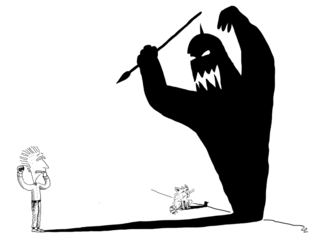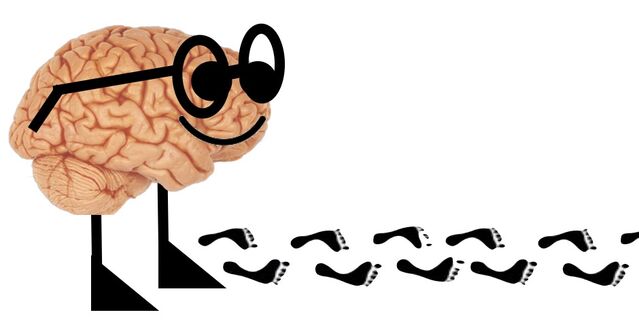Anxiety
How Did Our Ancestors Manage Anxiety?
Our ancestors lived with huge threats but coped by focusing on their next step.
Posted March 8, 2021 Reviewed by Ekua Hagan

For most of human history, people faced threats that we would find staggering. Most children did manual labor that was full of risks. Villages were often invaded and plundered, and if you didn’t see it yourself, you heard about it from others. There was plenty of time to rehash these threats on dark nights before the invention of electricity. And people died at home rather than in a hospital in the past, so children grew up witnessing the raw truth of our mortality.
Just going to the bathroom was dangerous in the past. If you went to the usual spot, it swarmed with vermin that might give you intestinal worms. If you looked for an isolated spot, you were vulnerable to predators.
Our ancestors could not call 911 or go to the emergency room. They couldn’t get an X-ray or a CAT scan when they had aches and pains. They never knew if an ache was the beginning of the end. If they had a toothache, they knew they’d be in pain until the tooth rotted enough to fall out.

Belief systems could make things worse. Many people believed that jealous neighbors could inflict disease by giving you the “evil eye” or casting a spell on you. Many lived in fear of eternal damnation. If you questioned the prevailing belief system, you could easily end up imprisoned or tortured.
How did people cope with the anxiety they inevitably experienced? Here are some likely answers.
First, they probably had more realistic expectations. They did not expect to be happy every minute. They did not believe others were happy all the time and they were missing out. They did not necessarily think something was wrong with them when they felt fearful.
Second, they built self-soothing skills. They didn’t expect to get serenity from good genes or a pill bottle. They saw it as a learned skill, so they spent time cultivating the skill.
Third, they focused on their next step. This is our brain’s fundamental self-soothing strategy, but we rarely hear about it, so let’s take a closer look. Imagine you’re a hungry gazelle. You risk being eaten by predators with each step, but you must go out looking for food to avoid starvation. So you focus on your next step. With each step, you weigh the evidence brought in by your senses and choose whether to step toward a reward or run from a threat. When you approach a reward, your brain rewards you with dopamine. When you escape a threat, you relieve cortisol. Then you analyze your next step.
If gazelle refused to go out until the world was completely safe, it would not survive. Instead, it has confidence in its next step.

We have inherited this operating system. Our limbic brain constantly responds to sensory input in ways that trigger approach or avoidance. But we humans have a giant cortex on top of our limbic brain. It is capable of abstracting in a way that animals cannot. We can imagine lions when no lions are present, and we can imagine greener pastures that do not actually exist. The abstractions of the cortex helped our ancestors make better survival decisions, but it has a downside too.
Our ancestors likely didn’t get so abstract because they were busy meeting survival needs. For example, to eat bread and butter they would have to grow wheat, grind flour, stoke an oven with firewood, milk a cow, and churn butter. In the world before refrigerators and supermarkets, you had to seek food constantly to survive. In the world before birth control, there was constant pressure to meet children’s needs as well as your own. If you failed to find water or firewood, you would perish. So you focused on your next step, and dopamine was your reward.
Today, you have a lot of energy left after you eat bread and butter. You have enough energy for your cortex to generate a steady stream of abstract threats and abstract rewards. If you fill your mind with imagined threats, you flood yourself with cortisol. If you fill your mind with imaginary rewards that you don’t actually approach, you deprive yourself of dopamine. You can end up feeling bad despite the unprecedented level of safety and comfort you enjoy.
You are here today because your ancestors survived. They survived by building confidence in their own next step.


